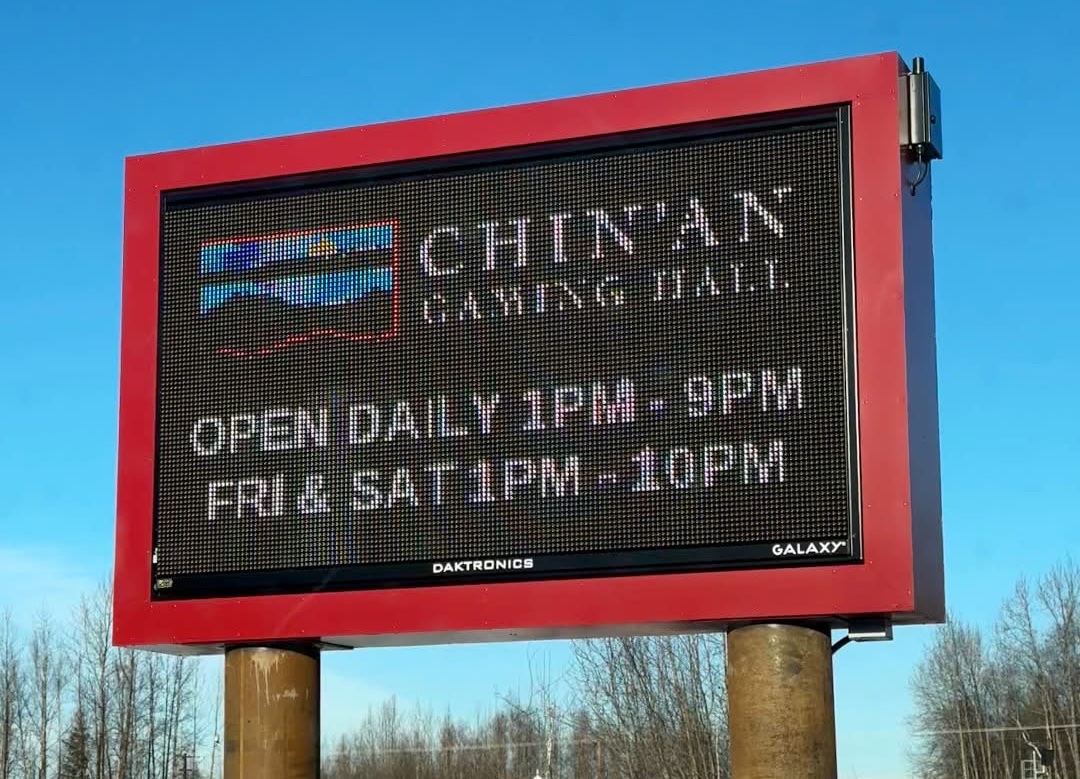
- Details
- By Chez Oxendine
- Gaming
A federal reversal on tribal jurisdiction over Alaska Native allotments has cast uncertainty over two high-profile tribal gaming projects, including a planned gambling hall on Douglas Island and an operating facility near Anchorage.
The U.S. Department of the Interior on Sept. 25 withdrew Solicitor’s Opinion M-37079, a 2024 legal interpretation that had established a presumption of tribal jurisdiction over Alaska Native allotments. The opinion had upended a 1993 interpretation that limited tribal authority on such lands.
The withdrawal means the National Indian Gaming Commission must reevaluate its January approval of the Central Council of the Tlingit and Haida Indian Tribes of Alaska’s gaming ordinance. That approval authorized the tribe to operate a gambling facility on the Jimmie George Allotment, a 20-acre parcel on Douglas Island near Juneau.
Tlingit and Haida spokesperson Dixie Hutchinson said in a statement the tribe anticipated the withdrawal and plans to press on.
“[We’re] committed to exercising our tribal sovereignty to preserve sovereignty, enhance economic and cultural resources and promote self-sufficiency and self-governance for tribal citizens,” Hutchinson wrote.
The state of Alaska welcomed the decision. In a statement provided to local news station KTOO, Attorney General Stephen Cox said the withdrawal “restores the jurisdictional balance Congress intended” under the Alaska Native Claims Settlement Act, which in 1971 revoked most reservations in the state and transferred lands to Native corporations.
The Douglas Island project was one of the first to move forward under the 2024 solicitor’s opinion. Another was the Chin’an Gaming Hall, opened in February by the Native Village of Eklutna on a tribal member’s allotment near Anchorage.
The Eklutna facility began operations with 85 electronic bingo machines in a temporary modular building, with plans for a permanent hall featuring up to 700 machines and restaurants. Tribal leaders promoted the project as a potential economic engine that could generate hundreds of jobs and tens of millions of dollars in annual activity.
The state quickly challenged the project. In February, Alaska filed suit in federal court in Washington, D.C., arguing that federal agencies misused their authority in approving the gaming hall. The state later sought a preliminary injunction to halt operations, citing a 2021 ruling that found the tribe lacked jurisdiction over certain allotments.
Local property owners also filed a separate lawsuit, citing concerns about traffic, environmental impacts and the loss of the area’s rural character.
Eklutna leaders have defended the project. Village President Aaron Leggett said the tribe would stand up to the legal challenges, noting that the hall represents a long-sought opportunity for economic development, per prior Tribal Business News reporting.
The Interior Department’s reversal strengthens the state’s position in the ongoing litigation. By withdrawing the 2024 opinion, the department effectively reinstated the 1993 interpretation that limited tribal jurisdiction over allotments in Alaska.
The NIGC has not yet announced how it will address the reversal in relation to the Tlingit and Haida ordinance or the Eklutna facility.
